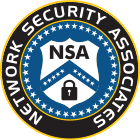Why Should You Use A Password Manager Like LastPass?
Passwords are as tricky to create and manage as they are vital to your daily life – both in and out of the office. Passwords grant you access to your email accounts, your office systems, your banking information, your social media – your personal and professional lives pretty much run on passwords.
Different sites, apps, and programs have different requirements for what your password needs to have – minimum character length, capitalization, numbers, and symbols being the most common. The idea here being the more complex a password is, the harder it is for a hacker to crack it.
This can be difficult to maintain – but it’s vitally important that you manage it
Why Is Password Management Important?
Despite the fact that passwords are the most direct way to access a user’s private information, most passwords in use today are not considered to be strong or complex enough – and even if they are, they aren’t updated often enough.
Passwords protect email accounts, banking information, private documents, administrator rights and more – and yet, user after user continues to make critical errors when it comes to choosing, protecting and managing their passwords.
How Often Should You Change Your Passwords?
That’s a good question.
Too rarely and you’ll find yourself threatened by ex-employees.
Too often and you’ll be wasting time with the update process, and constantly resetting passwords for employees that aren’t keeping up.
Let’s ask a few experts:
“For your corporate network account? Several times a year. […] Then use a strong, unique password on those, and change it regularly.”
– Mikko Hypponen, Chief Research Officer, F-Secure
“Passwords I use more often over the Internet and are in sensitive sites are changed 2-3 times a year.”
– Harri Hursti, independent security researcher
Furthermore, the Better Business Bureau recommends changing passwords on a monthly basis – but some consider this to be too often.
As noted by the National Institute of Standards and Technology, the tendency to change passwords too often has had a negative effect on password security. Users have countless passwords to keep track of, and so they take other risks (simple passwords, writing them down on sticky notes, etc.) to keep up.
The bottom line is that changing your passwords too often is not the answer to protecting yourself against rogue employees – so what is?
Top 2 Password Management Tools To Enhance Your Cybersecurity
- Password Managers: One of the best ways to maintain complex passwords is with a password manager. Password managers are the key to keeping your passwords secure. A password manager generates, keeps track of and retrieves complex and long passwords for you to protect your vital online information. It also remembers your PINS, credit card numbers and three-digit CVV codes if you choose this option. Plus, it provides answers to security questions for you. All of this is done with strong encryption that makes it difficult for hackers to decipher.
- MFA: Multi-Factor Authentication is a great way to add an extra layer of protection to existing system and account logins. By requiring a second piece of information like a randomly-generated numerical code sent by text message, you’re better able to ensure that the person using your employee’s login credentials is actually who they say they are. Biometrics like fingerprints, voice, or even iris scans are also options, as are physical objects like keycards.
What solution offers both security capabilities?
LastPass.
This password manager will help you keep track of passwords and what sites they’re intended for. LastPass uses a master password or your fingerprint to identify you. After logging in to LastPass, you can view and edit your passwords and their associated sites, as well as your usernames and the website you’re accessing.
In the end, managing a strict password policy, creating strong passwords, and using password managers can be frustrating, but it’s incredibly important. If you’re unsure about implementing these procedures, you can get a little help from an IT company like Network Security Associates.
Call (702) 547-9800 or click here to speak with our team of experts.

